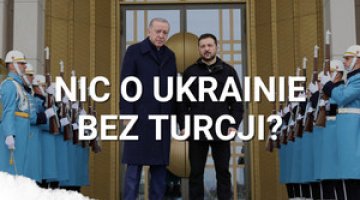Turkey and the United Kingdom: cooperation without Brussels
On 28 January, during British Prime Minister Theresa May’s visit to Ankara, an agreement was reached on the establishment of a joint working group responsible for the negotiation of a bilateral free-trade agreement. This agreement will create a new legal framework for economic cooperation after the UK leaves the EU. Currently, the commercial relationships between the UK and Turkey are based on a customs union between Ankara and Brussels from 1996 which is planned to be revised. Also during the visit, representatives of BAE Systems and the state-owned Turkish Aerospace Industries entered into a framework agreement to cooperate on a project for a new Turkish fighter jet (the value of the project’s first phase is estimated at £100 million). Prime Minister May also openly expressed support for the Turkish authorities, only criticising to a limited extent the conduct of the purges after the July coup attempt.
Commentary
- For Turkey cooperation with the United Kingdom is above all important for economic reasons (the share of the UK market in Turkey’s total exports amounted to 8.2% in 2016). At the same time, both countries have entered into the process of redefining their relations with Brussels: in the case of the UK, this is due to the process of leaving the EU (after the June referendum), while in the case of Turkey, Ankara has become increasingly assertive towards Brussels, as has been manifested by effective attempts to shape Turkey’s relationship with the EU (this was best demonstrated by the blackmail Ankara used during the migration crisis). By enhancing their cooperation, both countries are preparing for the real consequences of Britain’s departure from the EU, for example, it becomes necessary to establish a new legal base.
- From Turkey’s point of view, the visit by PM May, the first Western politician of this rank to visit Ankara since the July coup attempt, strengthens the position of the Turkish authorities with regard to the EU. It represents pro tem support before the meeting between President Erdoğan and German Chancellor Angela Merkel scheduled for 2 February, and before the next EU-Turkish summit planned for March. On the domestic front, collaboration with the UK will be used to strengthen the ruling camp before the referendum scheduled for spring on the amendment to the Constitution, which is Erdoğan’s top priority. The importance of cooperation with the United Kingdom is increased by the regular criticism Turkey receives from Brussels.
- In the economic dimension, Ankara will use the launch of negotiations on a free-trade agreement with the United Kingdom as an argument to force through solutions favouring it in its talks with the EU. This is important because this year Turkey and the EU will begin negotiations on revising the customs union connecting them (the European Commission has already received a mandate to begin these talks). The Turkish government may also be hoping that cooperation with the United Kingdom could also indirectly include Turkey in a new model for global economic integration, as promoted by the US President Donald Trump. This model is based on pragmatism, and replaces the human-rights element with the slogan of the rule of law, which is consistent with the Turkey’s domestic political process.





